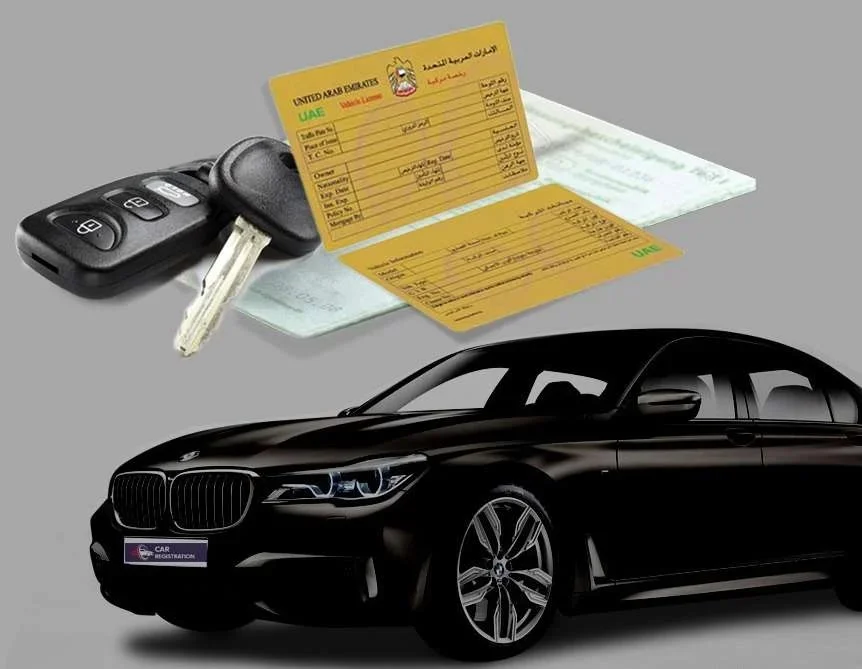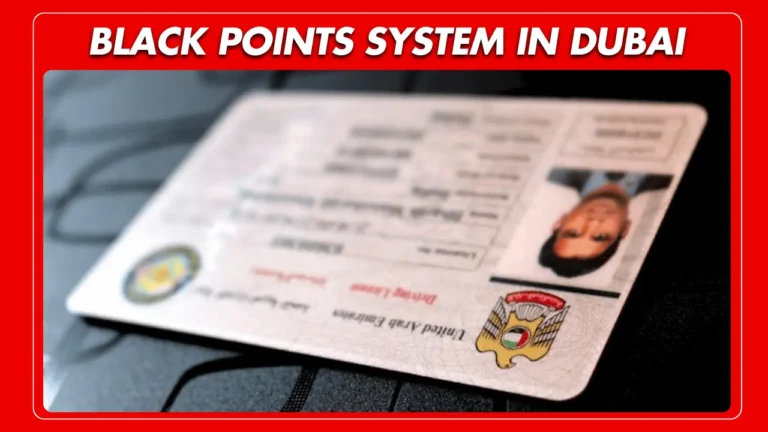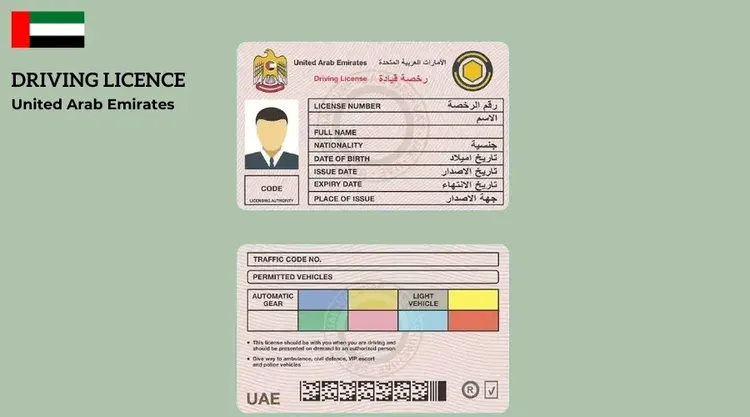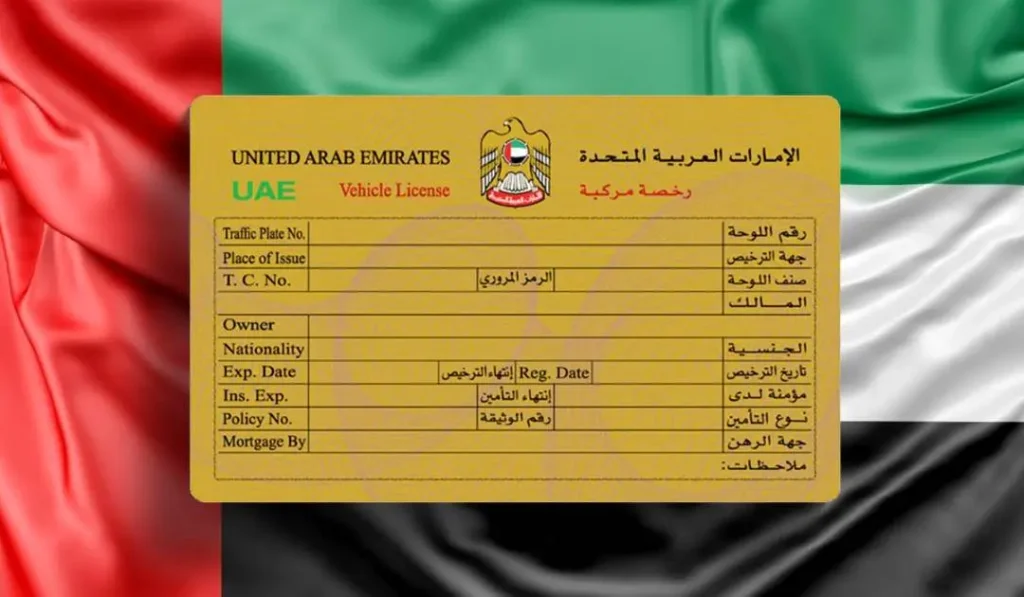ABU DHABI POLICE SERVICES (GHQ)
Vehicle registration
Vehicle registration is a mandatory legal process that authorizes vehicles to be driven on UAE roads. It ensures that vehicles meet the safety, environmental, and regulatory standards set by the government, while also linking the vehicle to its rightful owner through official documentation.
Key elements of Vehicle Registration include:
Submission of required documents such as Emirates ID, passport copy, valid driving license, and proof of vehicle ownership (invoice or existing registration card).
Vehicle testing and inspection to verify roadworthiness and compliance with safety and emission standards (for vehicles over three years old).
Obtaining insurance coverage from an authorized provider before registration or renewal.
Payment of fees and fines, including registration charges, traffic fines (if any), and Salik balances where applicable.
Issuance of vehicle registration card (Mulkiya) and license plates confirming legal status.
Vehicle registration must be renewed annually to maintain compliance with UAE traffic laws. Driving an unregistered or expired-registered vehicle can lead to fines, penalties, or even impoundment.
Having a valid registration not only ensures legal compliance but also enhances road safety and accountability. With professional support, individuals and companies can complete vehicle registration and renewals quickly, ensuring smooth mobility and adherence to UAE regulations.
Vehicle renewal
Vehicle renewal is a crucial process that ensures a vehicle remains legally registered and roadworthy in the UAE. Renewing the registration annually confirms that the vehicle complies with traffic, safety, and environmental standards, while also keeping the owner’s records updated with the licensing authority.
Key elements of Vehicle Renewal include:
Vehicle testing and inspection (mandatory for cars over three years old) to ensure safety and emission compliance.
Valid insurance policy issued by an authorized insurance provider, covering the renewed registration period.
Clearing fines and pending payments such as traffic violations, Salik charges, or outstanding dues.
Submission of required documents including Emirates ID, driving license, and existing Mulkiya (vehicle registration card).
Payment of renewal fees through the Roads and Transport Authority (RTA) or other emirate-specific licensing authorities.
Once the renewal is completed, the vehicle owner receives an updated registration card (Mulkiya) confirming the extension of the validity period.
Timely renewal is essential to avoid fines, penalties, or vehicle impoundment. It also ensures that vehicles on UAE roads remain safe, compliant, and properly insured. With professional assistance, the renewal process can be completed efficiently, saving time and avoiding delays.
Vehicle transfer
Vehicle transfer is the official process of changing the ownership of a vehicle from the seller to the buyer in the UAE. It ensures that the legal rights, responsibilities, and liabilities associated with the vehicle are formally recorded with the relevant licensing authority.
Key elements of Vehicle Transfer include:
Clearing all pending fines and dues on the vehicle before initiating the transfer.
Vehicle testing and inspection (if required) to verify roadworthiness and compliance with safety standards.
Valid insurance policy in the name of the new owner to complete the transfer.
Submission of required documents including Emirates ID, passport copy, driving license, and existing Mulkiya (registration card).
Approval from the licensing authority such as RTA in Dubai or equivalent departments in other emirates.
Payment of transfer fees and issuance of a new Mulkiya in the buyer’s name.
Completing the transfer ensures that the new owner is legally recognized, while the seller is released from any future financial or legal obligations related to the vehicle.
Properly managing the vehicle transfer process builds trust between buyer and seller, prevents disputes, and guarantees full compliance with UAE traffic laws. With expert guidance, both parties can ensure a smooth, transparent, and efficient transfer of ownership.
Black point registration
Black point registration is a traffic penalty system in the UAE designed to promote road safety and regulate driver behavior. When traffic violations are committed, black points are recorded against the driver’s license by the relevant traffic authority. Accumulating excessive black points can lead to license suspension, fines, or even vehicle confiscation, depending on the severity of the offense.
Key elements of Black Point Registration include:
Recording violations such as speeding, reckless driving, using a mobile phone while driving, or running a red light.
Assigning black points according to the seriousness of the violation, as defined by UAE traffic laws.
Maximum limit of 24 points, after which the driving license may be suspended or revoked temporarily.
Clearing points through specific measures such as attending traffic awareness courses approved by the authorities.
Monitoring through the licensing authority, where drivers can check their black point status online or via service centers.
The black point system ensures accountability, encourages safe driving, and reduces the risk of accidents. Staying informed about one’s black point status and maintaining compliance with traffic regulations helps drivers avoid penalties and ensures safer roads for all.
Vehicle insurance services
Vehicle insurance is a mandatory requirement for all vehicles in the UAE, ensuring financial protection and legal compliance in the event of accidents, damages, or third-party liabilities. Choosing the right insurance service helps vehicle owners safeguard themselves, their passengers, and other road users.
Key elements of Vehicle Insurance Services include:
Types of coverage:
Comprehensive Insurance – Covers damages to the insured vehicle, third-party vehicles, property, and personal injuries.
Third-Party Liability Insurance – Covers damages or injuries caused to others but excludes the insured vehicle’s own damages.
Customization options: Add-ons such as roadside assistance, replacement car, natural disaster coverage, and international coverage (e.g., GCC countries).
Eligibility and requirements: Insurance can only be issued upon submission of valid documents including Emirates ID, driving license, vehicle details, and previous insurance history (if any).
Premium factors: Costs depend on the driver’s age, driving history, vehicle type, and chosen coverage.
Renewal and compliance: A valid insurance policy is required for vehicle registration and renewal with the UAE licensing authorities.
Having the right insurance policy not only ensures legal compliance but also provides peace of mind, financial security, and protection against unexpected road risks. Professional assistance can help vehicle owners compare policies, select the most suitable plan, and complete the process efficiently.
All kind of driving license
A driving license is an official permit that authorizes individuals to legally operate vehicles on UAE roads. The licensing system covers various categories depending on the type of vehicle, ensuring drivers are qualified, trained, and compliant with traffic regulations.
Key types of Driving Licenses include:
Motorcycle License (Category 1): For motorcycles, scooters, and mopeds.
Light Vehicle License (Category 3): For cars and light motor vehicles; the most common license in the UAE.
Heavy Vehicle License (Category 4): For heavy trucks and goods vehicles.
Heavy Bus License (Category 6): For buses designed to carry more than 26 passengers.
Light Bus License (Category 5): For minibuses carrying between 14–26 passengers.
Forklift License (Category 7): For operating forklifts used in logistics, warehouses, and construction.
Shovel/Heavy Equipment License (Category 8): For operating heavy machinery such as cranes, shovels, and bulldozers.
General requirements include:
Minimum age (varies by license type: 17 years for motorcycles, 18 for light vehicles, and 21 for heavy vehicles/buses).
Submission of Emirates ID, passport/residency visa copy, and eye test results.
Completion of mandatory training classes and passing both theory and practical driving tests.
Holding the correct driving license ensures legal compliance, enhances road safety, and opens opportunities for both personal mobility and professional driving roles. With expert guidance, applicants can choose the right license category, complete training smoothly, and obtain certification efficiently.
CINA pass vehicle Registration
CINA Pass (Customs Inspection and Notification Approval Pass) is a clearance system that facilitates the registration of imported vehicles in the UAE. It ensures that vehicles entering the country meet customs regulations, safety standards, and environmental requirements before being legally registered with the licensing authority.
Key elements of CINA Pass Vehicle Registration include:
Customs clearance: Verification that the imported vehicle has been legally brought into the UAE with all applicable customs duties paid.
CINA pass issuance: The customs authority provides a CINA pass certificate, which acts as official proof that the vehicle has cleared inspection.
Vehicle testing and inspection: Ensuring the car complies with UAE road safety and emission standards before registration.
Submission of documents: Including CINA pass certificate, Emirates ID, passport copy, vehicle invoice, and shipping documents.
Insurance and registration: Obtaining valid vehicle insurance and completing registration with the Roads and Transport Authority (RTA) or the respective emirate’s traffic department.
Issuance of Mulkiya: The vehicle registration card (Mulkiya) and number plates are provided once the process is complete.
CINA Pass is an essential step for individuals and companies importing vehicles into the UAE, ensuring transparency, compliance, and smooth registration. With professional support, the process can be completed quickly, avoiding delays and legal issues.







